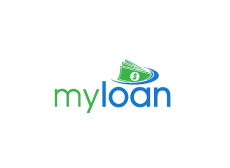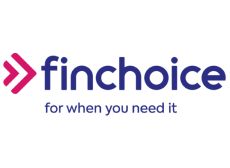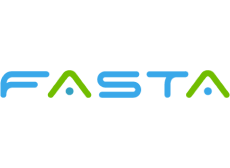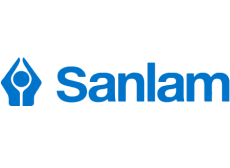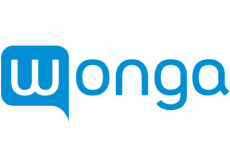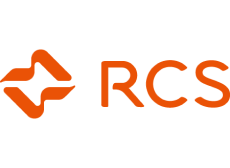Business Loans
Having a small business in South Africa is not impossible. There are banks and Fintech companies that offer business loans to entrepreneurs in the country. Obtaining a business loan can be a complicated process, but the right company can get you the money you need.
Unsecured business loans
Obtaining an unsecured business loan in South Africa can be a tricky business. Fortunately, there are a number of companies in the business that are happy to help. There are also a number of online loan providers who offer their services to business owners.
The first thing you should know about an unsecured business loan is that they are not free. They are a lot more expensive than secured business loans. This is because lenders need assurance that they will get their money back. However, unsecured business loans can offer you the flexibility to borrow more money, without the hassle of making regular EMI payments.
While unsecured business loans are often the better option, they can also carry a much larger risk. For example, if you default on your loan, your credit rating may be damaged.
While most lenders will do a credit check on you, they may not be willing to offer an unsecured loan without collateral. This means you’ll need to formally contract out your loan agreement. This is an important legal step to ensure your loan goes through.
Another important factor to know is that you’ll have to show the lenders that you can manage your money responsibly. For example, you might be required to set aside a certain percentage of your monthly salary to cover your loan. You should also have a good idea of how much you can borrow, because the loan amount will be determined by your financial situation.
A loan can be used for a variety of purposes, including starting a new business, buying an existing business, or managing your cash flow. These loans are usually offered by private firms or peer-based loaning platforms.
A business loan is also a great way to get a head start on your business. It’s important to keep in mind that you will have to pay interest on the money you borrow, so be sure to choose a loan with a low rate.
It’s important to make smart business investments to ensure your business’s long-term success. A business loan can help you get started, but only if you choose the right lender.
Banks offer business loans to small businesses
Getting a bank loan for your small business is a great way to fund major purchases, and a number of lenders have programs to help you get the cash you need. However, not all loans are created equal. Choosing the right bank will ensure that you get the financing you need.
Wonga loan offer a variety of small business loan products, including term, secured, and unsecured loans. Some lenders even offer pre qualification processes.
When you apply for a loan, you will need to supply financial records, tax returns, and legal documentation. You may also be required to open a business checking account with the bank. Depending on your lender, you may be required to provide financial statements for the past three months.
Banks will also require that you have a business that has been operating for at least two years. This is because the bank will want to see a stable business.
R30000 loan lenders will require that you have revenue of at least R1,000,000 per year. You may also be required to provide a business plan.
The application process for business loans can be lengthy. It can take months to get approved, especially for larger amounts. You may also find that your lender requires a soft credit inquiry to qualify you for the loan.
Banks offer loans to help businesses make large purchases, including machinery. They will generally offer you a term loan of up to R5,000,000. However, the most important thing to remember is that you will need to repay the loan over a set period of time.
Banks will also offer you a business line of credit, which is similar to a credit card. This is a line of credit that you can access as needed. The only difference is that you only pay interest on the amount of money you use. Generally, business lines of credit offer interest rates that are low. However, some banks require that you put up collateral to get a line of credit.
Several online lenders offer equipment loans. Typically, you will need to provide a detailed list of your equipment, along with a few months of bank statements.
Fintech companies are a viable alternative to retail banks
Traditionally, banks have been the main source of loans for small businesses. However, with the growing acceptance of on-line shopping and payment services, businesses now have the option of using fintech companies. They can offer a wide range of low-cost financial services, such as loans and credit-builder products.
In addition to being less expensive, fintech companies offer more features than banks. For example, they can analyze customers’ payment data and determine if cross-selling opportunities exist. They can also provide automated customer service and fraud prevention tools. In addition, they can bypass strict banking regulations and reporting requirements.
However, fintech companies still come with risks. One of the most significant risks is ensuring they meet regulations. Fintech companies also have to ensure they adhere to privacy regulations. Moreover, they need to find a source of revenue. Some of these sources may be hidden in plain sight within the financial system.
Unlike banks, fintech companies do not take deposits from consumers and do not have access to public guarantees. In addition, they do not have direct access to central bank liquidity lines. This creates operational challenges for some fintech companies.
In addition to the risks, fintech companies also have to determine how they will manage their customers’ data. For example, data mined through artificial intelligence can offer opportunities for improving costs and developing new services. In addition, companies can use chatbots to help customers with basic tasks.
Several fintech companies are also working to eliminate long-standing barriers. For example, MyLoans helps consumers find financial products. In addition, ABSA is a fintech company that was founded in response to increasing costs of traditional lending in South Africa. The company’s vision is to make the financial system more open and transparent. Ultimately, ABSA wants to create a fair marketplace that will increase economic growth in South Africa.
These factors could also mean more competition for banks. This could reduce bank revenues and lead to changes in pricing strategies. In addition, they may put pressure on smaller regional banks.
Despite these risks, fintech companies are expected to accelerate in South Africa. In addition to providing business loans, these firms are also developing innovative tools that will increase the convenience of payments. These tools can reduce costs and increase security.
Business loan requirements for self-employed South Africans
Several credit providers are ready to help you get your business off the ground. These providers offer loan options to both entrepreneurs and self-employed people in South Africa. In order to get a loan from these companies, you’ll need to know how to apply and what the loan requirements are. Once you have the money you need, you’ll need to make sure you make the payments on time. This is important for the security of your business and your credit record. You should also check out the interest rates and benefits to make sure you are getting the best deal.
The Government of South Africa has taken several relief measures in order to ensure that vulnerable businesses are provided with a helping hand. In addition to this, private organizations have also helped out with additional relief. As a result, a number of banks are willing to help small business owners with business loans. These banks have partnered with various private parties and have offered loans to vulnerable businesses. Some of these banks include Standard Bank, Nedbank, Absa, and Investec.
These companies will use their own risk evaluation processes in order to determine the amount you qualify for. If you want to get a loan, you should apply online or in person. Make sure you check out the benefits and interest rates before deciding which lender to use. Once you’ve chosen a loan, you’ll need to submit documentation in order to receive the funds. The amount you receive can vary from 500 rand to 200,000 rand. It is important to remember that you’ll need to make regular, on-time payments to maintain the security of your business and your credit record. These loans are designed for your business’ needs and are not meant for frivolous purchases.
Business loans are an excellent way to get the money you need to start or grow your business. Make sure you find a lender that will work with you and your business.

